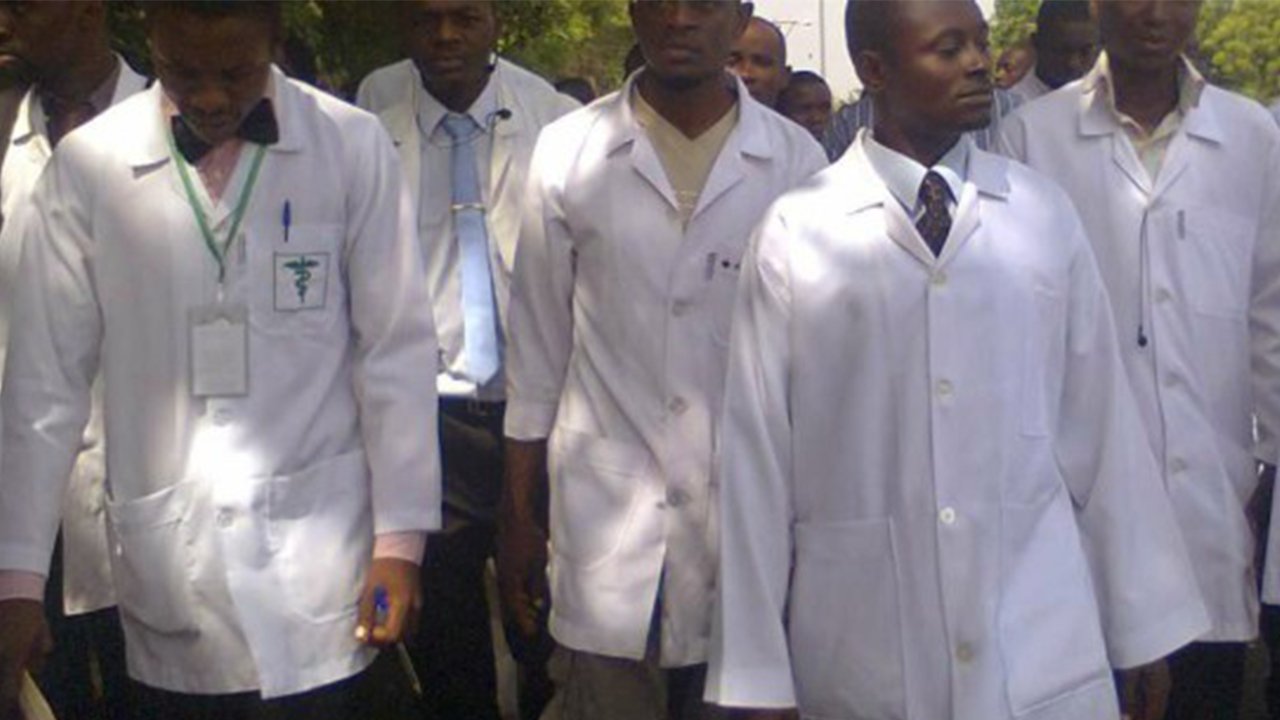Disturbed by the impact of this ugly trend on our country’s health sector growth and development, the MDCAN has conducted a survey amongst its chapters in March 2022
The Medical and Dental Consultants’ Association of Nigeria has said to meet the required number of doctors in the country, it is estimated that the country produces about 12,000 doctors every year.
This was contained in a press statement signed by the association’s President, Dr Victor Makanjuola, and made available to our correspondent.
He said a survey carried out in March 2022, by the association’s Medical Education Committee found that over 500 medical and dental consultants had left Nigeria for more developed countries over the preceding two years.
He, however, said it will hold a one-day summit in Abuja on December 6, with the possibility of birthing a turning point in medical education in Nigeria.

The statement read in part “Disturbed by the impact of this ugly trend on our country’s health sector growth and development, the MDCAN has conducted a survey amongst its chapters in March 2022 and found that over 500 medical and dental consultants had left Nigeria for more developed countries over the preceding two years.
“A further exploration of data by the Association’s Medical Education Committee showed that 9 out of every 10 medical and dental consultants with less than five years’ experience on the job had plans to leave the country. Furthermore, the Nigerian Medical Association recently reported that only 24,000 doctors are currently registered to practice in Nigeria, giving a ratio of one doctor to over 8,000 Nigerians, against the World Health Organisation’s recommended ratio of one doctor to every 600 people.
“It is important to note that the average medical and dental consultant is not only a clinician but also doubles as the teacher for medical students and doctors in specialist (residency) training. It, therefore, goes without saying that the loss of this category of highly skilled workforce to other countries will not only have an immediate negative impact on clinical service delivery but will leave a long-term, devastating impact on the training of future doctors in Nigeria.
“Anecdotal projections indicate that the 3,000 fresh medical and dental doctors, on average, produced by our local medical schools in Nigeria and another 1,000 produced by foreign medical schools, fall far short of the number of such healthcare personnel required to meet the country’s yearly new medical manpower supply needs, estimated to fall between 10,000 and 12,000 (about three times the current rate), according to the National Postgraduate Medical College. As a concerned stakeholder, we resolved to kickstart this necessary but difficult conversation that seeks to help the country in shaping the future of medical education in Nigeria in the hope of meeting the human resources needs of our national health system.”
He added that leaders of thought in the medical profession as well as seasoned educators and administrators of medical training institutions will speak at the summit.
“While we continue to urge the Government to improve the conditions of service and other ‘push’ factors, we consider this as an opportunity to rethink the philosophy and principles governing medical education in Nigeria,” he said.